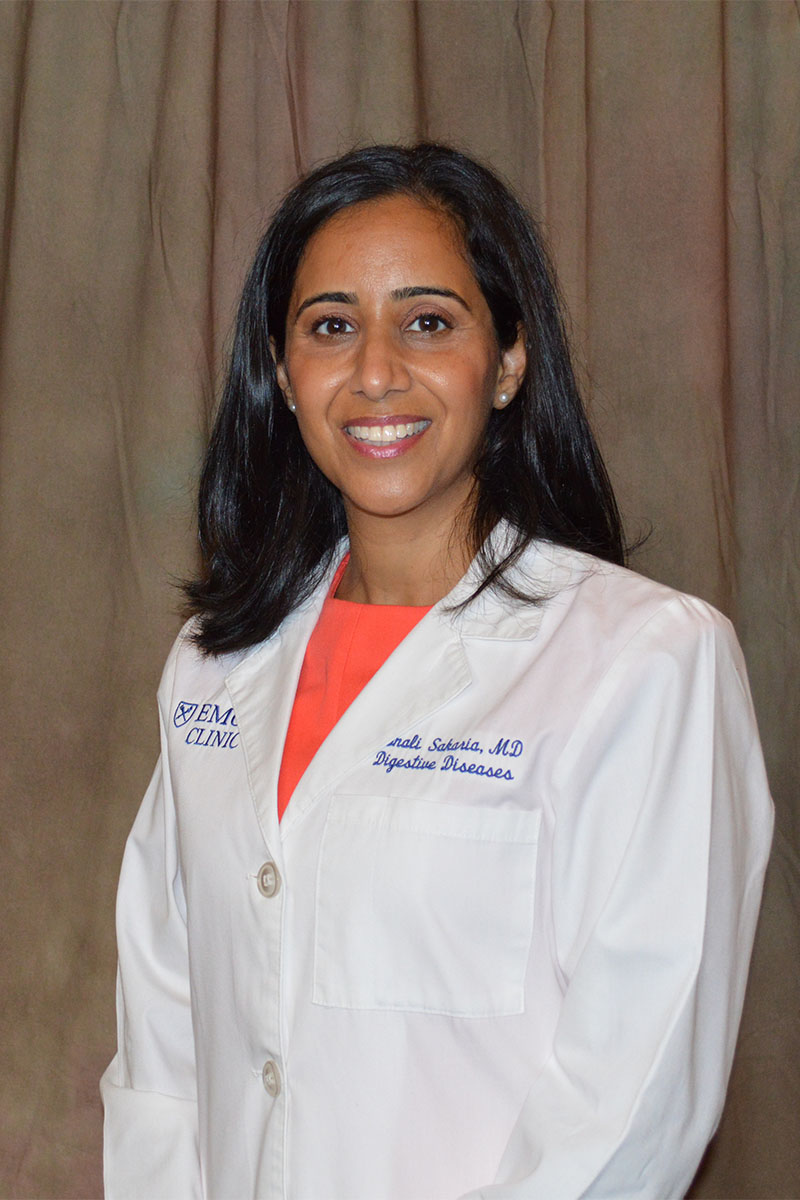
Sonali Sakaria, MD, recommends patients and consumers speak with their physicians about important colorectal cancer screenings that may have been missed or delayed during the pandemic.
ATLANTA – March is National Colorectal Cancer Awareness Month — a month set aside to increase awareness that colorectal cancer can be treated effectively, especially when detected early through screening. Screening tests can often find colorectal cancer when it’s small and before it spreads, while also identifying pre-cancerous growths called polyps before they develop into cancer, so they can be removed.
According to the American Cancer Society, colorectal cancer is the third leading cause of cancer-related deaths in men and women in the U.S., and the second most common cause of cancer deaths when men and women are combined. It's expected to cause more than 52,000 deaths during 2022.
“It’s really important to educate the community about colorectal cancer screening, prevention and treatment during this national awareness month,” says Sonali Sakaria, MD, clinical chief of gastroenterology, Emory Decatur Hospital, and assistant professor in the Division of Digestive Diseases, Emory University School of Medicine. “During the pandemic, patients have sometimes been reluctant to come in for routine screenings, but now with COVID-19 vaccines widely available and COVID cases declining, patients are more willing to schedule appointments for these tests. Still, many screenings have been delayed or postponed because of the pandemic.”
In an effort to get back on track, Sakaria recommends patients and consumers speak with their physicians about steps that can be taken to safely resume these important screenings.
Screening recommendations
Studeis have shown the rates of colorectal cancer among people younger than age 50 are on the rise, so the American Cancer Society and the U.S. Preventive Services Task Force have updated their recommendations for colorectal cancer screening, encouraging screenings now at a younger age.
Screening recommendations for those at average risk for colorectal cancer:
- People at average risk should start regular screening now at age 45, instead of age 50.
- People who are in good health should continue regular screening through the age of 75.
- People ages 76 through 85 should consult with their health care provider about whether to continue screenings, based on prior screening results and overall health.
Screening recommendations for those at higher risk for colorectal cancer:
People at higher risk for colorectal cancer may need to start screening before age 45. They may also need to be screened more often or have specific tests. People at higher risk are those with:
- A strong family history of colorectal cancer or certain types of polyps
- A personal history of colorectal cancer or certain types of polyps
- A personal history of inflammatory bowel disease (ulcerative colitis or Crohn’s disease)
Depending on a person’s risk level, the types of colorectal cancer screening can vary from stool-based tests to colonoscopies, an outpatient procedure where a long, flexible tube is inserted into the rectum. A tiny video camera at the tip of the tube allows the doctor to view the inside of the entire colon.
Schedule a screening appointment
At Emory Healthcare, five clinics in the Atlanta area offer convenient access to colorectal cancer screenings. Visit the Emory Clinic Digestive Diseases website to learn more, and view the various locations for scheduling. Call 404-778-7777 to schedule an appointment at a location near you.
The newest Emory Clinic Digestive Diseases Office is located on the Emory Decatur Hospital campus in the Professional Office Building on the 7th floor, 2675 North Decatur Rd., Suite 701, Decatur, GA. The clinic offers five Emory gastroenterologists with a variety of specialties, including: general gastroenterology, celiac disease, irritable bowel syndrome (IBS), inflammatory bowel disease (IBD), reflux, motility disorders, liver disease and more. The clinic has 15 exam rooms and is open Monday through Friday from 8 a.m. until 5 p.m.
“The new digestive diseases clinic at the Emory Decatur Hospital campus provides a new, convenient location for those living in or around Decatur, making it closer to home for many,” says Sakaria. “We are pleased to offer this additional location to care for our patients.
For more information about colorectal cancer and for cancer resources, visit the Winship Cancer Institute of Emory University at winshipcancer.emory.edu.
